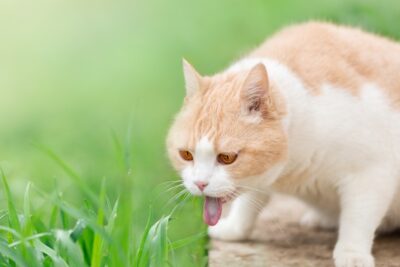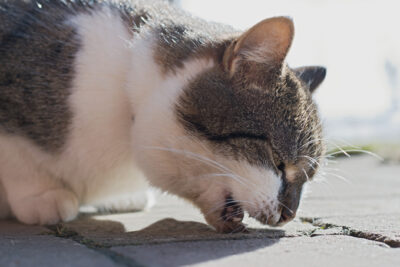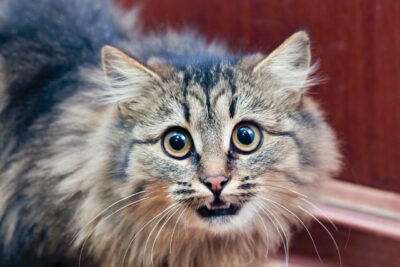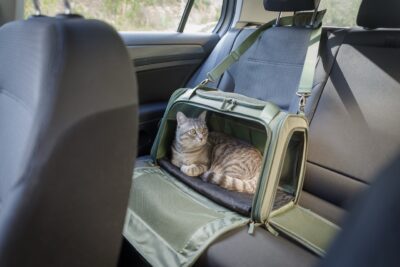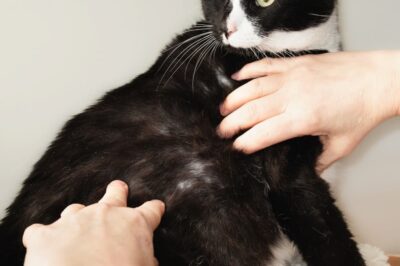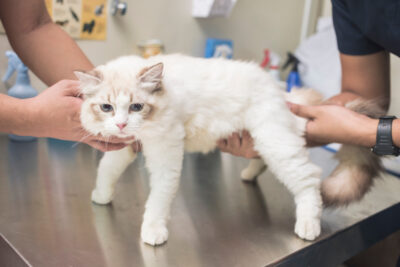Ultimate Guide to Cat Poop

Who’s the head of your household? Before you claim the title, consider this, cat parents: When was the last time your feline friend cleaned your bathroom? How much did you spend on that fancy new litter box? Are you, or are you not, reading an article about cat poop at this very moment?
It’s true – being a cat parent can be a dirty, demanding job. But staying on top of your cat’s litter box habits and happenings is important! From color to consistency to odor, every scoop of poop can reveal important information about their health.
Ready to sharpen your scoop sleuthing skills? Here’s everything you ever “wanted” to know about cat poop!
Is There Perfect Cat Poop?

According to your cat, every one of their poops is perfect. But in reality, not all numbers twos can be number one in look, feel and smell. Healthy cat poop should be brown to dark brown in color and have a segmented, sausage-like shape. The poop should be firm – but not too hard or pebble-like – and you should not see blood or mucus in it. While normal cat poop has an odor, it shouldn’t be overwhelming.
Learn More: The Abnormal Cat Poop Chart
Runny Cat Poop
Runny cat poop can be caused by a number of factors, including dietary changes, food intolerances, stress, infections, parasites, toxins, and chronic diseases. While not always an emergency, you should consult your veterinarian if your cat’s poop isn’t back to normal in a couple days, or if your cat is exhibiting other symptoms (including lethargy, appetite changes, and vomiting). Diarrhea is more serious in kittens, so if your kitten has runny poop for more than one day, consult your veterinarian.
Learn More: Runny Cat Poop: Causes and How to Help
Learn More: Diarrhea in Cats
Mucus in Cat Poop

The GI tract produces mucus to help keep things moving, so it’s normal to spot a small amount of clear-to-white gelatinous mucus in your cat’s poop. What’s not normal? Large amounts of “slimy jelly,” especially if the stool is loose and contains blood or green mucus.
Gross? Very. But noting the color and consistency of the mucus can help your veterinarian determine what’s causing the problem. Common causes of mucus in cat poop include dietary changes, parasites, inflammatory bowel disease, stress, food allergies, and infection.
Learn More: What Does Mucus in Cat Poop Mean?
Cat Poop Color

Again, normal cat poop should be brown or dark brown. However, poop spans the spectrum, with each color revealing different information about your cat’s health and well-being.
Green
Green poop can be caused by gallbladder or liver disease, toxin ingestion, parasites, and abrupt dietary changes. If your cat has a habit of eating grass, you may also notice green poop.
Learn More: Why Is My Cat’s Poop Green?
Yellow
Yellow poop can point to liver and gallbladder issues, parasites, viral infections, bacterial infections, and inflammation. Some foods can also cause yellow poop, including sweet potatoes and carrots.
Learn More: What Does Yellow Cat Poop Mean?
Black
Black cat poop indicates bleeding in the upper digestive tract, which is a veterinary emergency. Cat poop can also appear black when dried out, either because it sat in the litter box for a couple days, or because your cat is constipated.
Learn More: What Does Black Cat Poop Mean?
White
White cat poop is uncommon and can point to a serious blockage in the bile duct system; this should be immediately evaluated by your veterinarian, especially if your cat is lethargic, vomiting, or not eating. White, chalky poop can also be caused by a raw diet high in calcium.
Red
Red poop is caused by bleeding in the lower GI tract (colon, rectum, or anus) and should be brought to your veterinarian’s attention. You might notice jelly-like clots of blood, which are either mixed in the stool, on one end of the stool, or taking up most of the stool. Causes of blood in stool include constipation, diarrhea, stress, parasites, infection, polyps, foreign body ingestion, and toxins.
Learn more: Blood in Cat Stool
Orange
Orange poop can be caused by problems with the liver, pancreas, gallbladder, or bile ducts. Orange foods, as well as some orange medications, can also give your cat’s poop an orange-ish appearance.
Smell
Though cats may act like their poop doesn’t stink, normal cat poop has an odor. However, it shouldn’t be especially foul or overwhelming. If the smell is extreme, it’s time to check in with your veterinarian. Causes of super-stinky cat poop include an unbalanced diet, inflammatory bowel disease, parasites, stress, and problems with the liver, gallbladder, or pancreas.
At home, you can keep the litter box smelling as fresh as possible by scooping twice daily, making sure you have extra litter boxes, and using cat-safe air fresheners.
Learn More: Why Is My Cat’s Poop So Smelly?
Location

With cat poop, it’s all about location, location, location. If your cat is pooping outside the litter box, they might not approve of where the box is located. Most cats prefer their place of business to be in a private but easily accessed area, away from the hustle and bustle of the household (and, of course, away from any curious dogs). If you have a kitten, ensure that the box and its location are accessible, as some litter boxes have sides that are too tall for small kittens to climb over.
Learn More: 8 Ways to Stop a Cat from Pooping Outside the Litter Box
Learn More: How to Litter Train a Kitten?
Healthy Stool Basics

Poop happens, but as a cat parent, there are some ways you can help make it as tidy and stress-free as possible. Consider the following tips to keep your cat’s digestive system running smoothly:
Don’t forget to see the vet. Routine wellness visits can help catch health problems before they cause serious symptoms.
Maintain a balanced diet. Work with your veterinarian to determine the best diet for your feline friend. Keep portions and mealtimes consistent and avoid offering too many treats or “human foods.”
Provide enrichment. Keep your cat’s stress levels down with plenty of enrichment options like engaging toys, scratching posts, climbing trees, and window perches. Daily interactive play sessions will not only strengthen your bond, but also provide bowel-friendly exercise opportunities, as well.
Hydration is key. Dehydration can cause constipation and litter box woes. Ensure your cat always has access to fresh, clean water and consider offering a fountain for picky cats.
Practice parasite prevention. Cats should be on monthly preventives year-round for fleas, ticks, and worms.
Consider probiotics. Probiotics for cats can help balance the gut and improve digestion.
Learn More: Probiotics for Cats
Learn More: Cat Digestive System: A Closer Look at How It Works
So there you have it: the scoop on poop! It’s not the most rewarding part of being a pet parent, but the more you know about your feline friend’s business, the more you’ll know about their health and needs. Meow, back to the fun stuff!
